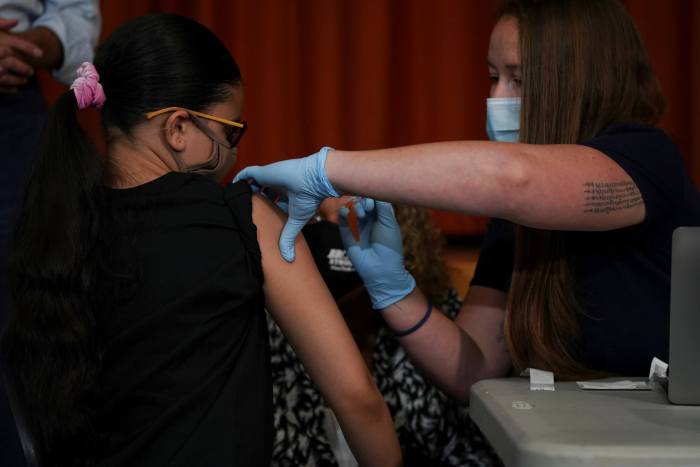Transgender women experiencing homelessness, food insecurity, poor health services, and low pay are less likely to receive necessary HIV prevention support or treatment, according to a Centers for Disease Control (CDC) study based on responses from more than 1,600 trans women across seven major US cities.
The study, released by the CDC on May 19, evaluated answers from trans women about the status of their health care support, housing environment, food security, and other factors. The study showed that homelessness, poverty, and food insecurity were associated with a reduction in access to education, employment, and health care, which is tied to lower rates of viral suppression among trans women living with HIV. Importantly, access to a competent and gender-affirming health care provider made a major difference in health care outcomes — which is particularly notable given that there have been calls to better educate doctors about PrEP options.
While the greatest share of participants were based in Los Angeles (31.3%), there were also respondents from New York City (17.4%), Philadelphia (13.7%), San Francisco (12.3%), New Orleans (10.3%), Atlanta (8.2%), and Seattle (6.8%). Forty percent of respondents were Hispanic/Latina, 35.4% were Black/non-Hispanic, 11.2% were non-Hispanic white, and 13.2% were either multiple races or classified as “other.”
Among all respondents, 42% tested positive for HIV. In the last year 39% experienced homelessness, 40% were food insecure, and 44% brought in less than $10,000 of income for the year. It should be noted, however, that the study was conducted between June of 2019 and February of 2020, which was prior to the emergence of the coronavirus pandemic. Subsequent studies have shown that marginalized communities have been disproportionately impacted during the pandemic.
The study revealed key differences on the basis of socioeconomic status and access to health care. For HIV-positive respondents, there was a correlation between nights of homelessness and viral suppression: The more nights one spent homeless, the less likely they were to be virally suppressed. Fewer people who had severe food insecurity and unmet health needs were virally suppressed. Those who were not comfortable with their provider were also less likely to be virally suppressed.
“When a person experiences challenges securing food or housing, prioritization of HIV treatment might be interrupted,” the study’s authors noted.
Those who said they had not tested positive for HIV were more likely to receive an HIV test in the last year if they had a reliable health provider. PrEP use was more prevalent among those who had health insurance and were more comfortable with their provider.
“Despite existence of need-based programs like the Ryan White HIV/AIDS Program and Ready, Set, PrEP, results indicate that participants without health insurance or with an unmet need for health care were less likely to achieve viral suppression or report PrEP use,” the study’s authors wrote “Evaluation of these and similar programs might help identify barriers to participation that need to be addressed to ensure that persons in need are aware of and accessing these programs.”
The authors of the study suggested that the socioeconomic factors that are impacting trans women should be confronted through efforts such as the US Department of Housing and Urban Development’s Housing Opportunities for Persons with AIDS (HOPWA) program, which is a federal housing assistance initiative for people living with HIV/AIDS.
Dr. Demetre Daskalakis, who is the director of CDC’s HIV Prevention Program and previously worked in the New York City Health Department, said the study demonstrated the ways in which socioeconomic factors make it more difficult for trans women to receive HIV prevention or treatment services.
“Addressing the underlying factors that prevent this community from accessing HIV-related services — including providing culturally-responsive and gender-affirming health care — can help to reach more transgender women and build confidence in the interventions that can benefit their health and improve their quality of life,” Daskalakis said in a written statement.






























